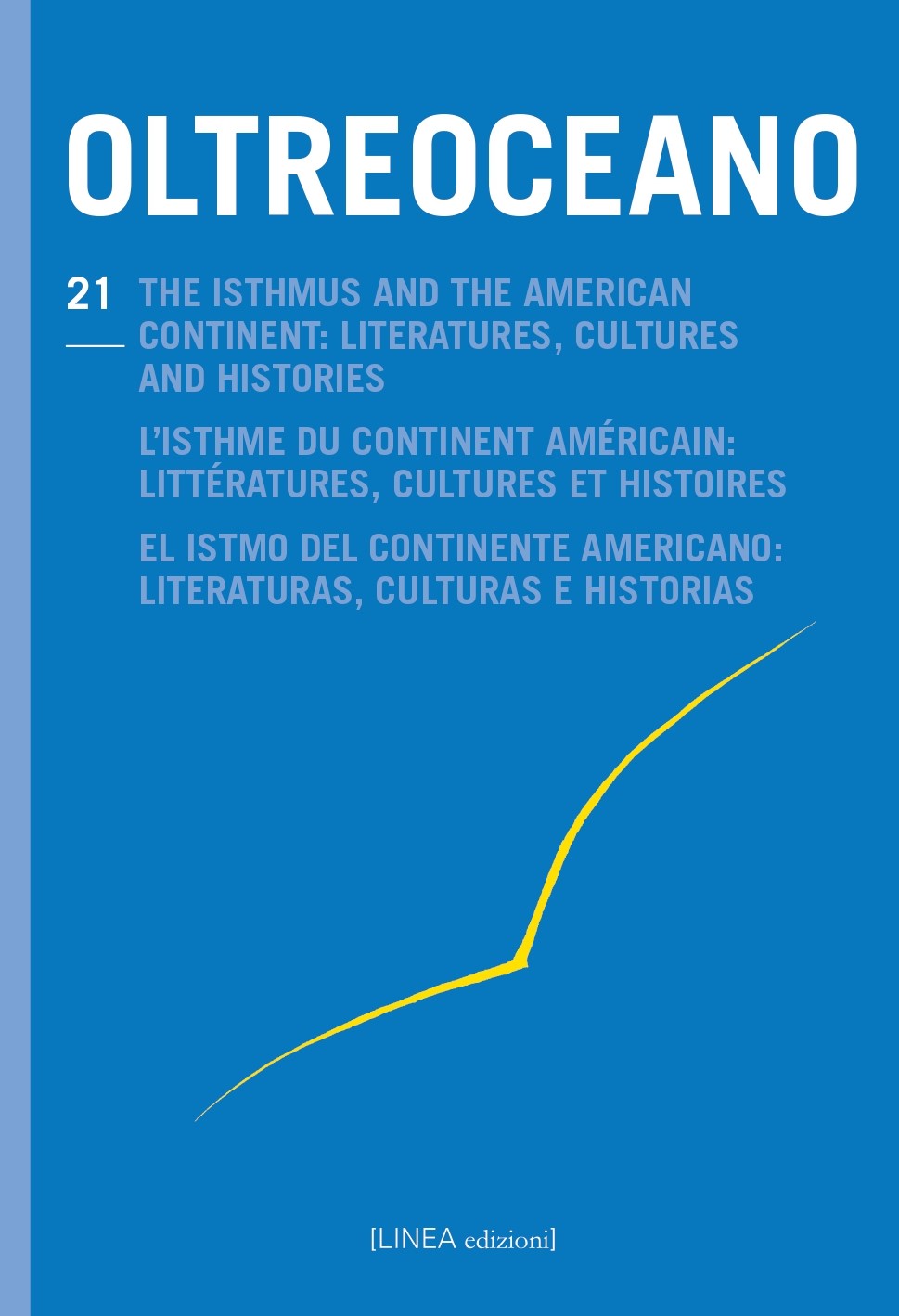Revisiting Dario today as a cultural condensation point between centuries
DOI:
https://doi.org/10.53154/Oltreoceano69Keywords:
Rubén Darío, condensation point, Modernism, IntellectualityAbstract
Much has been written about the founding father of the Modernist American movement, the Nicaraguan poet Rubén Darío. Less perhaps, and that is what this article seeks to develop, has been written about the intellectual Darío of the late nineteenth century and early twentieth century, his role and context, as well as the conditions, circumstances and contradictions that surrounded his figure. Our interest is to place him as an intellectual who constituted a social, cultural and political condensation point of that turn-of-the-century transition period. More than just a Nicaraguan poet, Darío was adopted as a preeminent figure by various countries, from Guatemala to Chile and Argentina, and he was well aware of it. Along with a new way of conceiving literary writing, Darío established a style of acting, a way of relating literature with the institutionality of power, with diplomacy and with intellectual centers. That is the Darío that interests us here, the one who functions as a mirror to trace the figure of the Latin American intellectual and his new conditions and characteristics, as a new condensation point of the intellectuals in the passage from the twentieth to the twenty-first century.
Downloads
References
Altamirano, C. & Sarlo, B. (1997): Esteban Echeverría, poeta pensador. En C. Altamirano & B. Sarlo (Eds.), Ensayos argentinos. De Sarmiento a la vanguardia (pp. 17-82). Argentina: Espasa Calpe.
Arellano, J. E. (1999): Calibán y Martí en Los raros de Darío. Anales de Literatura Hispanoamericana, pp. 431-444.
Blandón, E. (2010): Rubén Darío: mutilación y monumentalización. En J. Browitt y W. Mackenbach (Eds.), Rubén Darío. Cosmopolita arraigado (pp. 104-126). Managua: IHNCA-UCA.
Bonilla, A. (1967): América y el pensamiento poético de Rubén Darío. San José: Costa Rica.
Browitt, J. y Mackenbach, W. (Eds.) (2010): Rubén Darío. Cosmopolita arraigado. Managua: IHNCA-UCA.
Darío, R. (1938): Rubén Darío. Escritos inéditos. Recogidos en periódicos de Buenos Aires y anotados por E.K. Mapes. New York: Instituto de las Españas.
Darío, R. (2004): Cantos de vida y esperanza, 1905. R. Oviedo (Ed.). Barcelona: coedición de Área y Random House Mondadori.
Debayle, M. (1967): Discurso, luego de su nombramiento como Musa del Centenario. Recuperado de http://nicaraguademisrecuerdos.blogspot.com/2010/04/centenario-del-nacimiento-de-ruben.html (Consultado el 15/06/2020).
Delgado, L. (2010): Modernidad, tradición y barbarie en la crónica modernista: las estrategias fundacionales de Darío en España contemporánea. En J. Browitt & W. Mackenbach (Eds.), Rubén Darío. Cosmopolita arraigado (pp. 17-40). Managua: IHNCA-UCA.
Díaz-Plaja, G. (1967): Crónicas publicadas en el diario madrileño Ya. Recuperado de http://www.doredin.mec.es/documentos/00820073008392.pdf (Consultado el 20/11/2021).
Medina, J. (2010): Retrato de un proceso profano: Rubén Darío y la agonía del poeta moderno. En J. Browitt & W. Mackenbach (Eds.), Rubén Darío. Cosmopolita arraigado (pp. 82-103). Managua: IHNCA-UCA.
Ortiz, A. & Mackenbach, W. (2010): Escribir en un contexto transareal: Rubén Darío y la invención del modernismo como movimiento. En J. Browitt & W. Mackenbach (Eds.), Rubén Darío. Cosmopolita arraigado (pp. 350-382). Managua: IHNCA-UCA.
Rama, Á. (1985): Las máscaras democráticas del modernismo. Montevideo: Fundación Ángel Rama.
Torres E. (1966 ): La dramática vida de Rubén Darío. Barcelona / México: Grijalbo.
Zanetti, S. (2004): Leer en América Latina. Mérida, Venezuela: El otro el mismo.
Downloads
Published
How to Cite
Issue
Section
License

This work is licensed under a Creative Commons Attribution-NonCommercial-ShareAlike 4.0 International License.
The authors undertake to comply with the following conditions, which are considered accepted at the time of submission of their contributions.
The sending of a text implies that it is unpublished and not submitted to be published elsewhere.
1. If accepted, the author shall confer on the publisher the right to publish and distribute it both in paper form and in the online electronic edition. The published articles will be downloadable and made available in open access.
2. Provided that it correctly indicates that the first publication took place in the journal Oltreoceano. Rivista sulle migrazioni the author has the right to: a) reproduce the article in separate extracts or collected in a volume; b) publish the article on their personal website or teaching site provided that these sites are of a non-commercial nature; c) deposit the article in online archives of a non-commercial nature, linked to the institution they belong to or as part of projects for the non-commercial dissemination and open access of scientific works.
The use of contributions by third parties, for commercial or otherwise unauthorized purposes, is not allowed. The publisher declines all responsibility for the unauthorized use of the material published in the journal.












